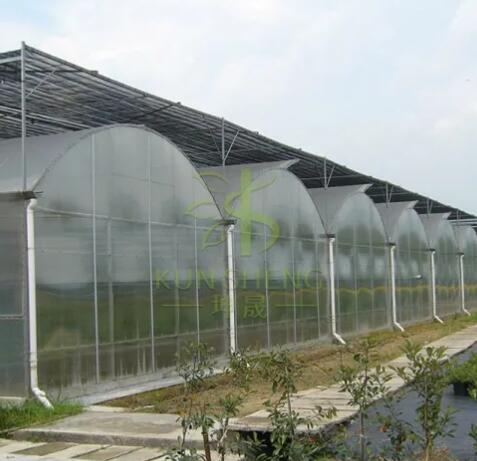10 Key Questions to Ask Before Building a Greenhouse
Building a greenhouse is an exciting and rewarding venture for gardeners and farmers alike. However, before embarking on this project, it's crucial to ask yourself a series of key questions to ensure that your greenhouse meets your current needs and offers the flexibility for future growth. In this comprehensive guide, we will explore these 10 essential questions to consider before constructing a greenhouse.
What is your greenhouse project's budget?
Determining your budget is the first and arguably the most crucial step in planning a successful greenhouse. The budget will set the tone for the entire project, influencing decisions regarding the size, materials, and features of your greenhouse. Take into account not only the cost of construction but also ongoing operational expenses, including heating, cooling, and maintenance. A well-defined budget will help you manage your resources efficiently and ensure that your greenhouse remains a sustainable investment.
What kind of structure best suits your current and future needs?
The choice of greenhouse structure is pivotal to the success of your project. Assess your current needs and long-term goals to determine the most suitable design. Consider factors like size, shape, and material options. If you anticipate expanding or changing the crops you grow in the future, opt for a flexible design that can accommodate these shifts. This foresight will save you time and resources down the road.
What type of soil will the greenhouse be built on?
The soil composition of your chosen site can significantly impact the health and growth of your plants. Conduct a soil test to analyze its texture, pH level, and nutrient content. This information will help you decide whether to amend the soil, use raised beds, or employ alternative growing mediums like potting mix or hydroponics. Understanding your soil is the first step in creating an optimal growing environment for your plants.

Which planting system makes the most sense for the future?
Custom Greenhouses offer the flexibility to employ various planting systems, each with its own set of advantages and considerations. Traditional soil-based planting, hydroponics, and aquaponics are popular choices. When making this decision, think about your long-term goals and crop preferences. Consider factors such as water usage, nutrient delivery, and the sustainability of your chosen system.
What irrigation system is best suited for your needs?
Proper irrigation is crucial for plant health and productivity in a greenhouse. Various irrigation methods are available, including drip irrigation, soaker hoses, and automated systems. Assess your water source, the needs of your crops, and the size of your greenhouse to determine which system is most efficient and cost-effective. Efficient water distribution not only benefits your plants but also conserves this valuable resource.
Does the location have sufficient natural light and airflow?
Adequate sunlight and ventilation are critical for the well-being of your plants. The site you choose should receive an optimal amount of natural light for plant growth. This often means placing the greenhouse in a location with southern exposure and minimal shading. Furthermore, ensure that the greenhouse design includes proper ventilation to prevent overheating during hot periods and to regulate humidity levels. Adequate airflow not only supports plant health but also minimizes the risk of pests and diseases.
What crops will you be growing?
The choice of crops is a fundamental consideration when planning your greenhouse. Different plants have varying requirements for temperature, light, and humidity. Some crops thrive in high-temperature environments, while others prefer cooler conditions. Assess your goals and the local market demand to select crops that align with your capabilities and resources. Additionally, consider the size and layout of your greenhouse to accommodate the specific needs of your chosen crops.
What light levels are best for the greenhouse crops you intend to grow?
Understanding the light requirements of your selected crops is essential for optimizing their growth and yield. Some plants, such as tomatoes and peppers, require high levels of light, while others, like leafy greens, can thrive with lower light levels. Research the light intensity and duration that your crops need and design your greenhouse to provide these conditions. Utilizing supplemental lighting, such as grow lights, may be necessary in regions with limited natural sunlight or during the winter months.
Do you need separate heating controls?
Greenhouses are designed to create a controlled environment for plants, which includes maintaining a consistent temperature. Depending on your geographical location and the types of crops you intend to grow, you may need heating systems to regulate temperature during colder months. In some cases, you might need separate heating controls to ensure that different sections of the commercial greenhouse maintain the specific temperatures required for various crops. Make an informed decision regarding your heating requirements to ensure year-round productivity.
When will you be producing crops?
The timing of your crop production is influenced by factors such as local climate, market demand, and the specific varieties of plants you choose to grow. Align your production schedule with growing seasons and market trends to maximize the success of your greenhouse venture. Planning ahead will help you determine planting schedules, crop rotation, and the use of seasonal crops to diversify your offerings.
In conclusion, building a greenhouse is a significant undertaking that requires careful planning and consideration. By addressing these 10 key questions, you can make informed decisions about your greenhouse project, ensuring it aligns with your budget, goals, and the specific needs of your crops. Building a greenhouse that accommodates your present and future requirements will lead to a successful and productive endeavor, whether you are a hobbyist gardener or a commercial farmer.
185
0
0
All Comments (0)
Previous: Top 10 best seedling starter trays of 2023
Next: 30 Frequently Asked Questions And Answers About Garden Fertilizer
If you are interested in sending in a Guest Blogger Submission,welcome to write for us!




Comments